SARAJEVO, BOSNIA AND HERZGOVINA (AFP) – Rusmir SMAJILHODZIC and Emmy VARLEY in Belgrade
As winter grips the Balkans, the poor are caught in a cruel bind, being forced to light fires at home for heating while fuelling a pollution crisis smothering the region.
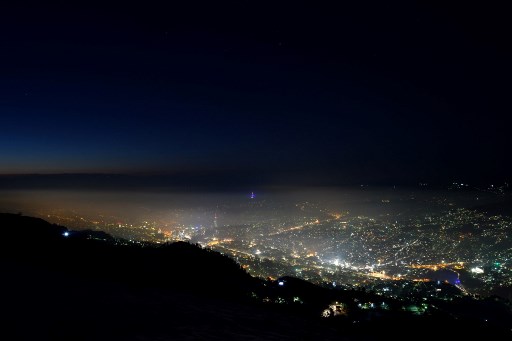
In recent weeks, Balkan capitals from Belgrade Sarajevo to Skopje and Pristina have been ranked among the world’s top 10 most polluted major cities, according to the monitoring application AirVisual.
While these are small cities compared to leading Asian polluters like New Delhi and Dhaka, a combination of coal-fired power plants, old cars and fires to heat homes are pumping the air with toxins.
“I know it is polluting. I am not an idiot but my only other choice would be to heat this home with electricity and that is damn expensive,” said Trajan Nestorovski, who like many in his working-class Skopje neighbourhood burns wood to stay warm in winter.
His wife Vera added: “There are a couple of factories near our neighbourhood that are burning God knows what in the evenings”.
Thanks to the rise of mobile phone apps that measure air quality, like the local Moj Vozduh (My Air) created by a Macedonian developer, citizens are finally grasping the full extent of the crisis.
“Serbia is suffocating, has anyone seen the minister of the environment?”, said a recent headline in Belgrade’s local Blic newspaper, speaking of the fog and dirty air enveloping the city.
Protests have been erupting around the region in recent days.
In Skopje, the capital of North Macedonia, young people have taken inspiration from Swedish activist Greta Thunberg by holding a spate of protests on Fridays.
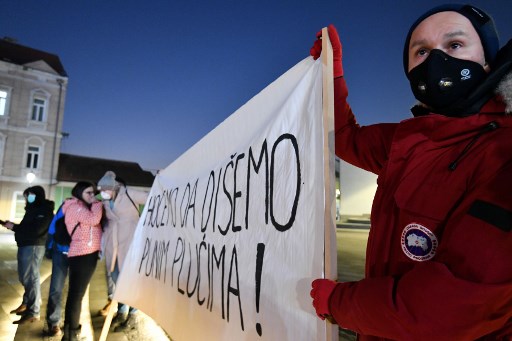
“Greta inspired all of us,” said 17-year-old Iskra Ilieska.
“In winter, half of my school class is absent because of lung problems. That is not normal,” she said.
In neighbouring Bosnia, several hundred people wearing face masks gathered in the city of Tuzla this week to demand a plan from authorities to tackle pollution and phase out coal-fired plants in the next five years.
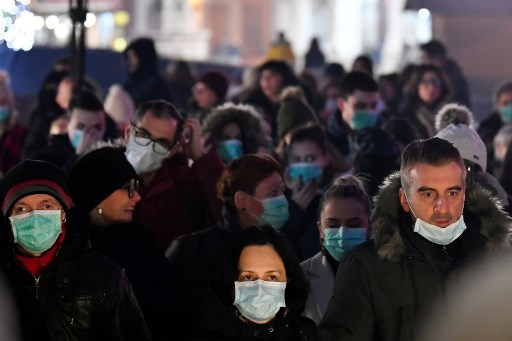
“The only recommended measures are that we stay shut up at home… when you go out on the streets, in the playgrounds, you won’t see children anywhere,” said Alisa Kasumovic, a mother in her forties.
Silent killer
According to a recent UN environment report, air pollution causes nearly 20 percent of premature deaths in 19 Western Balkan cities.
The main sources of the dust, soot and smoke are low-grade coal plants and household heating, the report said.
More than 60 percent of people in the region rely on coal and firewood to heat their homes, the report said. Only 12 percent of buildings are connected to district heating systems.
Governments need to make “clean energy more accessible”, ban old polluting vehicles and tighten regulations on industry emissions and power plants, the UN urged.
Many people cannot afford cleaner heating options at home in countries where average wages are around 500 euros or less.
Sali Ademi, a 78-year-old in Kosovo’s capital Pristina, uses coal.
“There’s no worse thing, but what can you do?” he said in a city whose air is already poisoned by two nearby coal-fired power plants running on outdated technology.
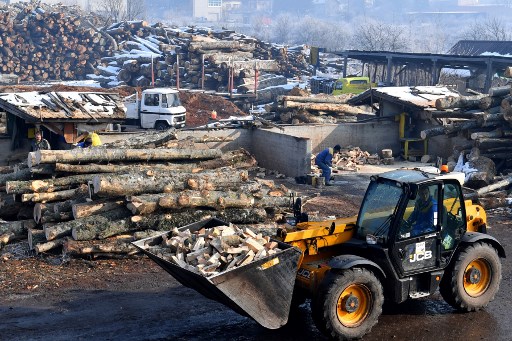
Cable car escape
Those who warm their homes with fires also bear the brunt of health risks, according to experts.
“Some of the emissions from these stoves stay in the house and poison them,” warned Anes Podic, president of an environmental group in Bosnia who has called on the government to replace inefficient wood stoves in the country.
In cities like Sarajevo and Skopje, a circle of mountains helps trap the hazardous air in the valleys where residents live.
Sakiba Sahman, 60, is a Sarajevan taking advantage of a recent reduction on ticket prices for a cable car that rides to the top of the 1,160-metre-high (3,800-foot-high) Mount Trebevic, which peaks above the smog over the Bosnian capital.
“We’ve come to spend a few hours to ventilate the lungs,” she told AFP.
Down below, “the pollution is enormous, there are a lot of cars, everything is dirty, grey and depressing.”
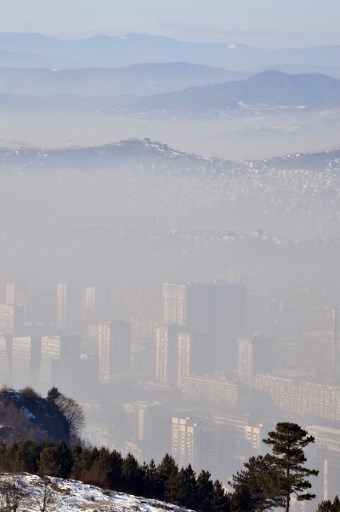
© Agence France-Presse








